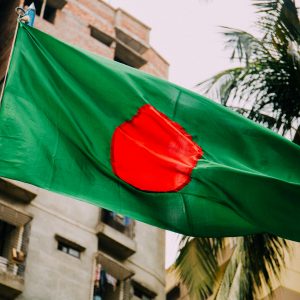OIC delegation urges education for Rohingya children in Bangladesh’s refugee camps
DHAKA, Bangladesh (AA) – The visiting high-profile delegation from the Parliamentary Union of the OIC Member States (PUIC) have called on the Bangladeshi authorities to adopt a mechanism for educating the Rohingya children in the crowded refugee camps in the country’s southern border district of Cox’s Bazar.
The 11-member team from the Committee on Muslim Communities and Minorities, a subsidiary of the PUIC Standing Specialized Committee on Political Affairs and Foreign Relations, led by Turkish lawmaker Orhan Atalay raised the issue while holding a meeting with the Bangladeshi Education Minister Dr. Dipu Moni in the capital Dhaka on the concluding day of the committee’s four-day tour.
Referring to the team’s visit to the Rohingya camps and conversation with the persecuted people, Atalay told the education minister: “We have seen the education facilities in the camps for a huge number of Rohingya children. But it’s not enough as per needs and whether Bangladesh has any plan to mobilize more resources for the education of the Rohingya community.”
Referring to the addition of nearly 35,000 newborn babies in the refugee camps every year, the Turkish lawmaker emphasized on education for Rohingya to keep their hopes alive.
The education minister replied that there is no arrangement to educate the Rohingya children in the Bangla language and they need to be taught in their own language and English as an international language under the Myanmar curriculum.
“We are facing a problem to find competent teachers who can teach the Rohingya children in their own language,” said Moni.
Stating that there are not enough educated people in the Rohingya community, she said: “We have set up learning centers in the camps and are operating those through some NGOs and we will talk to all concerned departments over the issue ( of Rohingya education).”
Bangladesh is currently hosting more than 1.2 million Rohingya, mostly fleeing a brutal military crackdown in their home country of Myanmar’s Rakhine State in 2017.
The Rohingya have been termed by the UN as ‘the most persecuted community in the world.’
Bangladesh seeks effective role by OIC
The delegation later met Bangladesh’s Foreign Minister AK Abdul Momen in the capital Dhaka and discussed the human rights situation of the Rohingya.
During an hour-long meeting, Momen called on the team to work with all 57 members of the Organization of Islamic Cooperation (OIC), the biggest Muslim platform in the world, so that they put up joint efforts to pressurize Myanmar to take back its nationals.
He added that peaceful and dignified repatriation of the persecuted people to their motherland is the only sustainable solution to the crisis.
“We are continuously trying to solve the issue through dialogue with the neighboring friendly nation of Myanmar. But they are complicating the issue on different pretexts,” Momen added.
The team praised Bangladesh for hosting the huge number of persecuted Muslims and assured the South Asian overpopulated nation that they would try their best to keep the Rohingya issue alive in the global arena.
The PUIC committee is expected to present its findings on the Rohingya human rights situation in January next year.













